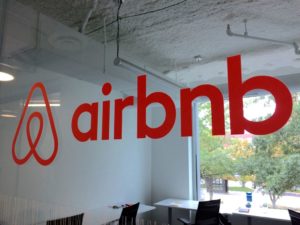 This past weekend, the Arlington County Board approved new regulations on Airbnb and other short-term home rentals.
This past weekend, the Arlington County Board approved new regulations on Airbnb and other short-term home rentals.
The move was cheered by Airbnb, which said Arlington is now the “first D.C. area municipality to pass an ordinance creating fair rules for middle class residents and families to continue sharing their homes.”
The regulation officially makes Airbnb legal in Arlington, whereas it might have been technically illegal before, under the local zoning ordinance. But there was one issue not addressed by the county press release that Airbnb hosts will want to consider going forward: taxes.
ARLnow.com did some more digging and it turns out that Airbnb hosts (along with those using services like Homeaway, Craigslist, etc.) will have to pay the same 7.25 percent Transient Occupency Tax as hotels. And they’ll have to pay it in the same way — by creating an account with the county and filing monthly tax returns.
That’s a burden that may discourage casual hosts from, say, just renting their place for the inauguration, assuming they want to stay on the right side of the law.
“The Commissioner of Revenue will require each person renting property to transients, including those who obtain an accessory use permit for short term homestays under the new County ordinance, to collect and remit the TOT to the County,” Ray Warren, Arlington’s Deputy Commissioner of Revenue, tells ARLnow.com.
“This is done and will be done the same way as it is with every other entity providing transient accommodations,” Warren said. “We will set up an account for the accommodation provider. They must file each month by the 20th for the previous month’s activity.”
What if a homeowner did not rent his or her property in a given month?
“They should file monthly, but it is easy (especially online) to file a zero return,” Warren said. “Otherwise we don’t know if they had no business or merely neglected to file.”
So monthly tax returns will be the norm for anyone renting their place on Airbnb. If the homeowner decides to stop renting for the foreseeable future, they can notify the Commissioner of Revenue’s office and stop filing.
“It would not be proper, however, for the homeowner to again advertise the property for rent without opening a TOT account,” noted Warren.
Because Airbnb does not publicly list the addresses of rental properties, Warren said that compliance will primarily be accomplished through tips. Another compliance mechanism: checking the tax records of those who have applied for the new “accessory homestay” permit.
“We have made efforts this year, but we depend on tips and voluntary compliance,” he said. “To the extent there are those who do not comply with the County’s new ordinance (and get an accessory use permit) we will continue to rely on tips from the public.”
“Homestay rentals, unlike other public businesses, do not generally have signage or other markers, so that can be difficult otherwise,” Warren added. “We will also be reviewing individual (state) income tax returns to look for persons reporting such rental income. I suspect that bringing the vast majority into compliance through the County ordinance will also increase the number of leads as to non-compliant locations.”
County Board member John Vihstadt, the lone “no” vote on the short-term rental ordinance, said had “some serious reservations” about it and thought the process was “too rushed” and left “issues inadequately addressed.”
Contacted by ARLnow.com two days after the vote, he said he was not sure how taxes would be collected on Airbnb properties.
“That is something, frankly, that is not clear,” he said. “We need to make this easy for the hosts and guests.”

